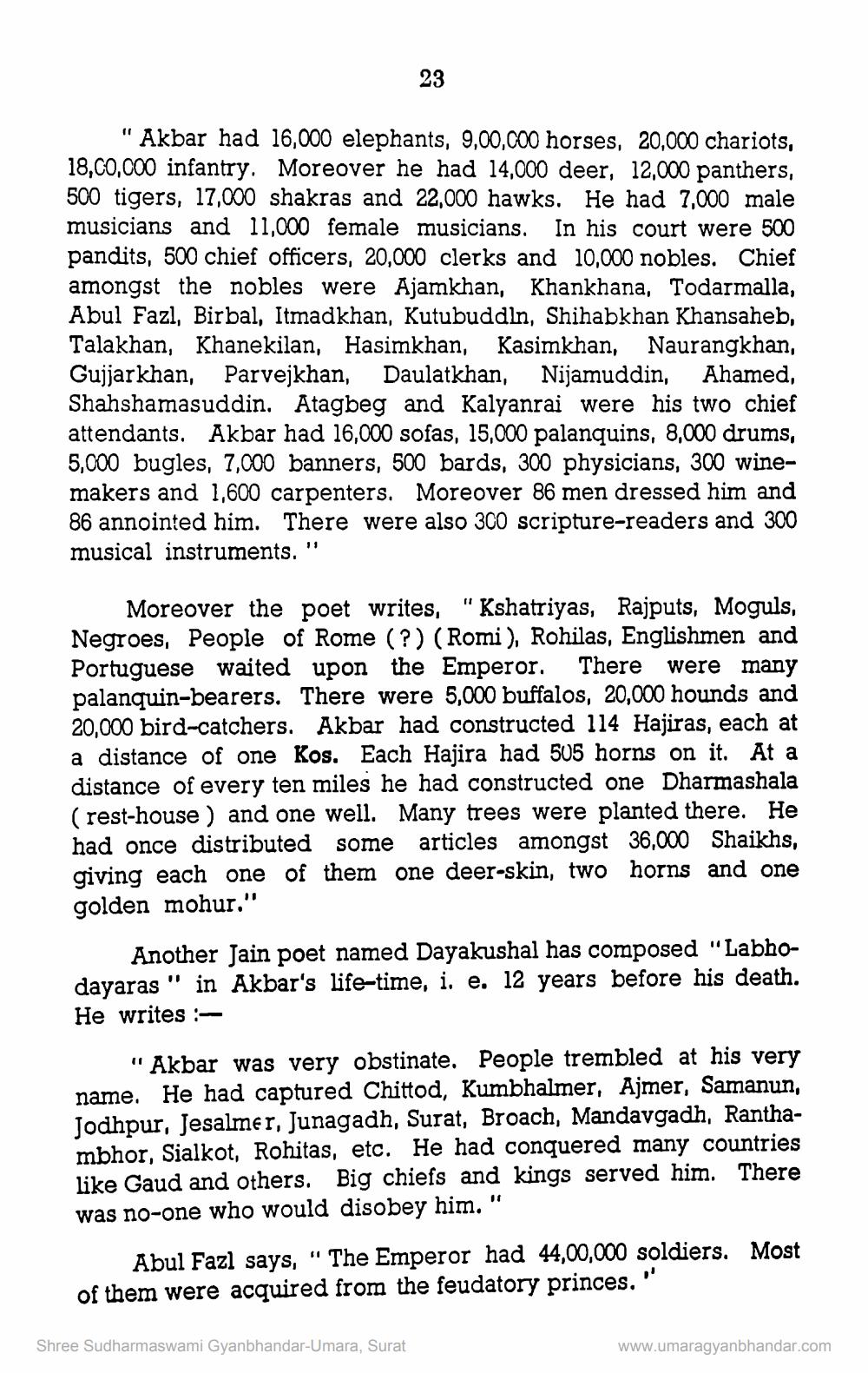________________
23
"Akbar had 16,000 elephants, 9,00,000 horses, 20,000 chariots, 18,00,000 infantry. Moreover he had 14,000 deer, 12,000 panthers, 500 tigers, 17,000 shakras and 22,000 hawks. He had 7.000 male musicians and 11,000 female musicians. In his court were 500 pandits, 500 chief officers, 20,000 clerks and 10,000 nobles. Chief amongst the nobles were Ajamkhan, Khankhana, Todarmalla, Abul Fazl, Birbal, Itmadkhan, Kutubuddin, Shihabkhan Khansaheb, Talakhan, Khanekilan, Hasimkhan, Kasimkhan, Naurangkhan, Gujjarkhan, Parvejkhan, Daulatkhan, Nijamuddin, Ahamed, Shahshamasuddin. Atagbeg and Kalyanrai were his two chief attendants. Akbar had 16,000 sofas, 15,000 palanquins, 8,000 drums, 5,000 bugles, 7,000 banners, 500 bards, 300 physicians, 300 winemakers and 1,600 carpenters. Moreover 86 men dressed him and 86 annointed him. There were also 300 scripture-readers and 300 musical instruments."
Moreover the poet writes, "Kshatriyas, Rajputs, Moguls, Negroes, People of Rome (?) (Romi), Rohilas, Englishmen and Portuguese waited upon the Emperor. There were many palanquin-bearers. There were 5,000 buffalos, 20,000 hounds and 20,000 bird-catchers. Akbar had constructed 114 Hajiras, each at a distance of one Kos. Each Hajira had 505 horns on it. At a distance of every ten miles he had constructed one Dharmashala (rest-house) and one well. Many trees were planted there. He had once distributed some articles amongst 36,000 Shaikhs, giving each one of them one deer-skin, two horns and one golden mohur."
Another Jain poet named Dayakushal has composed "Labhodayaras " in Akbar's life-time, i. e. 12 years before his death. He writes :
"Akbar was very obstinate. People trembled at his very name. He had captured Chittod, Kumbhalmer, Ajmer, Samanun, Jodhpur, Jesalmer, Junagadh, Surat, Broach, Mandavgadh, Ranthambhor, Sialkot, Rohitas, etc. He had conquered many countries like Gaud and others. Big chiefs and kings served him. There was no-one who would disobey him."
Abul Fazl says, " The Emperor had 44,00,000 soldiers. Most of them were acquired from the feudatory princes.'
Shree Sudharmaswami Gyanbhandar-Umara, Surat
www.umaragyanbhandar.com




